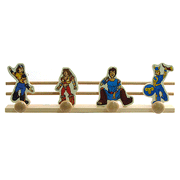 Plenty of good game buys on www.Target.com:
Plenty of good game buys on www.Target.com:$26.99 RHYTHM HEAVEN FEVER GAME FOR NINTENDO Wii - $10; rated E for Everyone.
$35 STEEL DIVER GAME FOR NINTENDO 3DS - $10; rated E for Everyone.
$32.49 EXCITEBOTS: TRICK RACING FOR NINTENDO Wii - $15; rated E for Everyone.

















